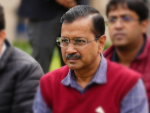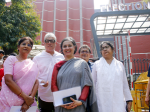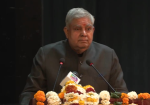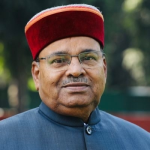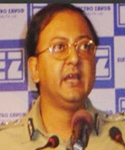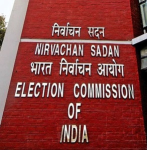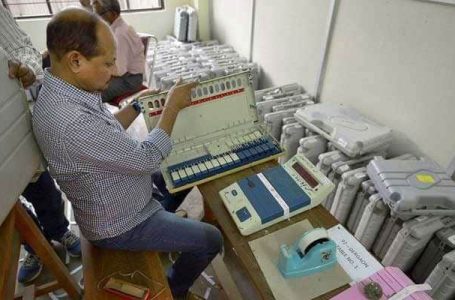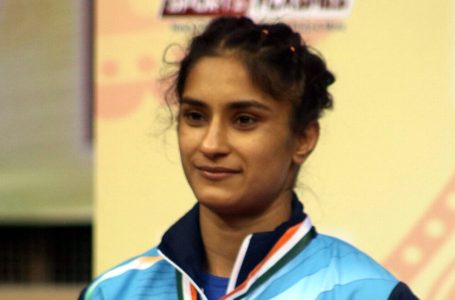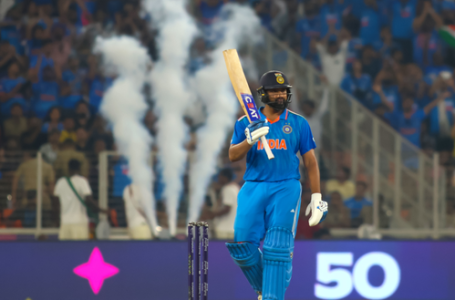
New Delhi: The citizen in Indian democracy is the weakest being today, with all fora and institutions where it could turn to for justice having been compromised, and it was, therefore, high time that the judiciary woke up to save the country. That was how legal luminaries described the situation on the occasion of the third anniversary of February 2020 riots of Delhi.
Justice AP Shah, Justice Madan Lokur, Justice Anjana Prakash, senior advocates Vrinda Grover, Rebecca John and several others intellectuals, former bureaucrats and veteran journalists said without mincing word that the agencies responsible for dispensing justice and for ensuring security to citizens were today acting under political pressure and out of political expediency.
Their remarks came while participating in a discussion on a report on the 2020 Delhi riots brought out by a Citizens’ Committee under the auspices of the Constitutional Conduct Group (CCG). The report has put in the dock police, administrative authorities and the ruling political dispensation for their lapses ” deliberate”, or otherwise in controlling the violence and nabbing the real culprits.
The Delhi riots followed the anti-(CAA) Citizenship Amendment Act) protest by Muslims who feared that the law was absolutely discriminatory against them and would result in loss of citizenship of millions of them. In fact Indra Grover would not call it as riots but an outright “massacre.”
CCG report had noted how the peaceful protest has been projected by the ruling party, with full connivance of media, especially the TV channels, as a conspiracy against India and its participants as seditionists and jehadis, and how this build up of hate against the minority community finally resulted in violence against them, and how law enforcing authorities later slapped provisions of some of the draconian laws like UAPA and anti-sedition laws against the protestors who were simply exercising their rights under the Constitution of a democratic state.
But are we living in a democratic state at all? The questioned popped up frequently during the discussion. “There is emergence of elected autocracies. When they come to power, they kill democracy using the democratic institutions as a tool,” Justice AP Shah, former chief justice of Delhi and Madras, said while discussing the report at the Constitutional Club here. Bodies like the National Human Rights Commission have been compromised, so there is no forum left to which the citizen could complain about not being allowed to speak the truth, he said.
In this context, names of journalist Mohammad Zubair and Patricia Mukhim were mentioned as victim of state for reporting just what was happening.
Justice Anjana Prakash, former judge of Patna High Court, wondered why the courts could not see beyond what the prosecution was saying. For example FIR 59 in the Delhi Riots case has no credible evidence which could justify invocation of UAPA, she said, adding that ”it is a fairy tale.”
It was unfortunate that mostly courts take the ‘procedure established by law’ as the law passed by the legislature, and they have ceded their territory to the legislature or the executive, otherwise they have always the discretion to grant bail, Justice Prakash said.
Justice Madan Lokur, former judge of the Supreme Court, strongly pitched for making the police accountable for its acts of omission and commission, like a citizen was did, and here the judiciary should stand up to ensure this accountability, he said. ” In the case of Delhi riots, the Police failed on many counts, for which mere transfer was no punishment.
Former Home Secretary GK Pillai said he would have resigned had he been commissioner of Delhi Police at that time. At a place like Delhi, where you have all the forces, the riots should have been controlled within 24 hours, but the police commissioner did not provide, deliberately or not, adequate police forces, and moreover the charge-sheet of the police is so contradictory.
However, Vrinda Grover did not think that inadequacy of the police was the issue in Delhi rights, as it was a question of will to prevent the violence. The question was related to the institutional bias, particularly against minorities, but the society and the system has shied away from discussing it for various expedient reasons, she said.
In her view, the CCG report was very important as there was a “politics of erasure’ at play in this country, which wants to erase from official record and from public memory all acts of injustice and repression. The Bilqis Bano case was one of the examples, she said.
Lawyer Rebecca John, who is representing many of the Delhi riots victims in the court, lamented the delay in the process of justice and the draconian provisions of law which precludes the possibility of them getting justice in the forseeable future.
Journalist and the editor Caravan, Hartosh Bal ,spoke about the role of media during the ant-CAA protest and during the Delhi riots. He said it was unfortunate that there was no difference in the rhetoric used by the ruling BJP leaders and the media. Media in fact seemed to be complicit in the belief system of the establishment, he said. Besides, editor, The Wire, Seema Chishti underlined the need of coming out with reports like the CCG one on Delhi riots to keep the issue of justice alive in the society’s discourse.
The discussions were moderated by retired IAS officer and former chairman of Lalit Kala Academy Ashok Vajpayee.
—–INDIA NEWS STREAM



